
Contents

A message from the editors
Welcome to the eighth instalment of Scran & sIPs™ - the winter edition of the quarterly publication by Marks & Clerk that focuses on Intellectual Property and the Scottish Food and Drink industry.
In this edition of Scran & sIPs™, Erik Rõuk and Martin Gutwillinger from our Luxembourg office talk about the Benelux trade mark system; Paul Chapman reflects on DIY beer; Julie Canet discusses the Advertising Standards Authority’s ruling on an advert by Bill’s Restaurants; and Andrea Williams revisits the plant variety right regime in the UK post-Brexit. Sarah Baillie from creative agency StudioLR provides some tips on how to make your brand stand out, and we have some interesting Q&As from Dunnet Bay Distillers, The Scotch Whisky Experience, and Brew Toon. We speak to Kate Adamson and Gavin Cullen in our Meet the Team section, and the team have sent in some pictures of their Christmas decorations.
We wish you, your colleagues, family and friends a very Merry Christmas, and health and happiness in the New Year!
Jason Chester and Julie Canet

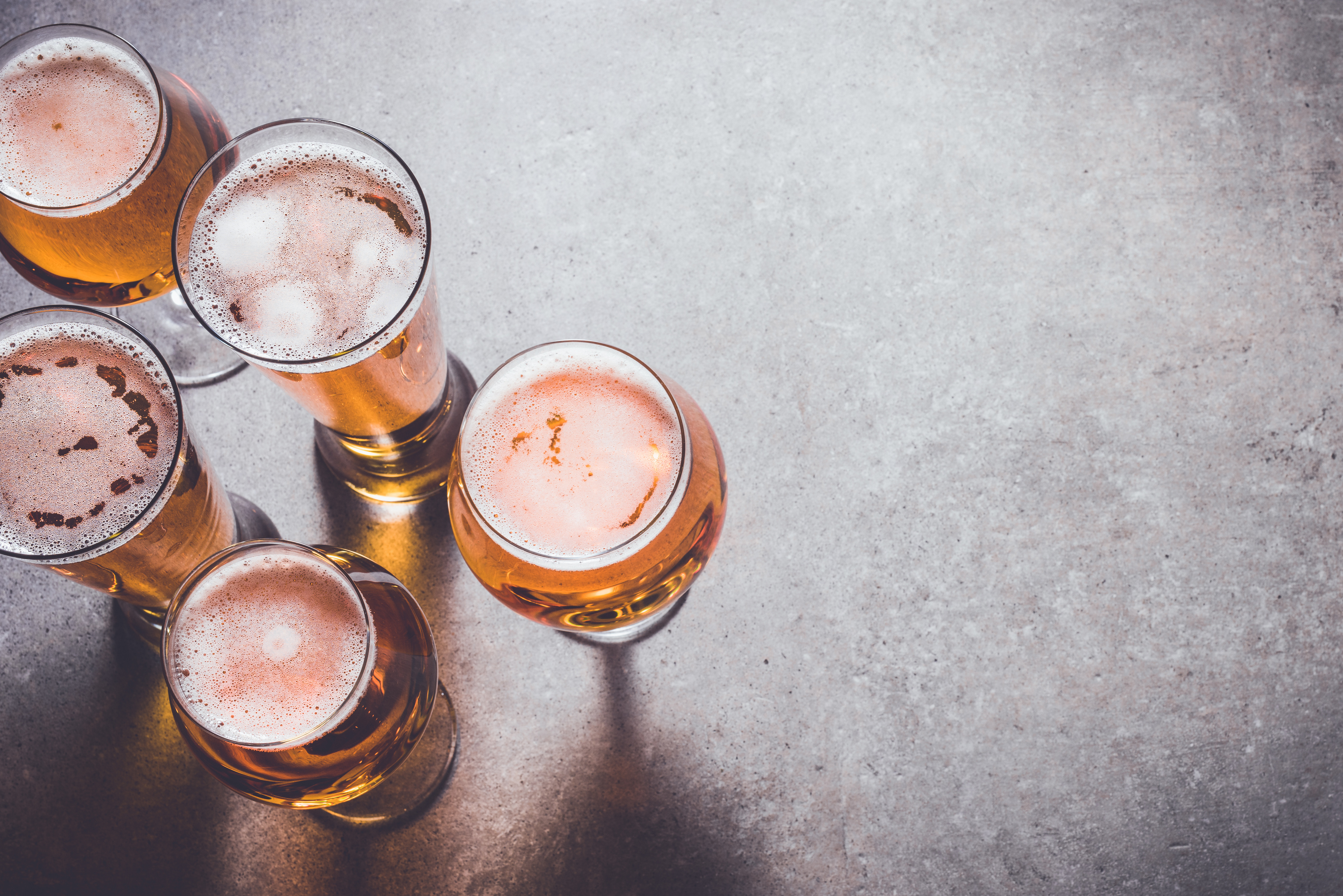
DIY Dog - A BrewDog story
If you drink beer and like craft beer, I would be surprised if you have not tried one or more BrewDog beers at some point. Although not without some controversy, BrewDog is certainly a Scottish success story and they are not afraid to try something different. Their marketing campaigns often raise an eyebrow or two.
Moreover, the company is now more than 25% owned by its employees and shareholders, or Equity punk community, as they like to call them. Their bars also share 50% of their profits with their workers. I recently had the opportunity of visiting one of their bars in Cleveland, Ohio.
It is clear that they like to see themselves as different and in 2016 BrewDog decided to share all their recipes online. To say this is unusual is perhaps an understatement. BrewDog’s recipes are their intellectual property (IP) and companies do not generally give away their secrets freely. I am sure you will be aware of an orange coloured Scottish soft drink, made from girders apparently, the recipe of which is a closely guarded secret. Thus, when it comes to recipes, a company would generally not want others to know what it is, although people may try to copy it.
However, the idea of providing others with knowledge of your IP is not entirely unique. For example, open-source software is computer software that is released under a license that the copyright holder grants someone the right to use, change, and distribute the software and its original source code to others. One benefit of this, is that it leads to further development of the software and also allows others to iron out any flaws etc. Nevertheless, I doubt BrewDog are necessarily hoping that others can improve on their recipes, but I guess you can always write to them if you think you have.
If you go to BrewDog’s website you will find a section called “DIY DOG”, which is dedicated to sharing their recipes.
Quite why they decided to share all of their recipes I am not sure, although their website says “sharing is caring…”. Perhaps we can invite them to contribute to a future edition of Scran & sIPs™, so they can explain some of the background and why they feel it is important to share their recipes. All I can say is, I am glad they did.
I love BrewDog beers and Punk IPA is one of my all-time favourite beers. I am an all-grain home brewer, so at some point it was inevitable that I would want to try and make my own BrewDog copy (or clone as it is termed in the home-brew field). So recently I purchased the grain, hops (which even BrewDog describes as being an insane amount) and yeast, and set about making my own batch of Punk IPA. Of course, as anyone will know, following a recipe does not always ensure that you get exactly the same result at the end of the day and my home brew set up is at a slightly different scale to what BrewDog employ.
Nevertheless, I was very pleased with the outcome. I am sorry that you cannot taste it here, but I can assure you it is very tasty. I have not done a side-by-side comparison with actual Punk IPA, perhaps I will, but does it really matter? I am pleased with the outcome, it is Punk IPA-like and surely that is all that matters. I still have a few bottles left. Will they last until Christmas, probably not.
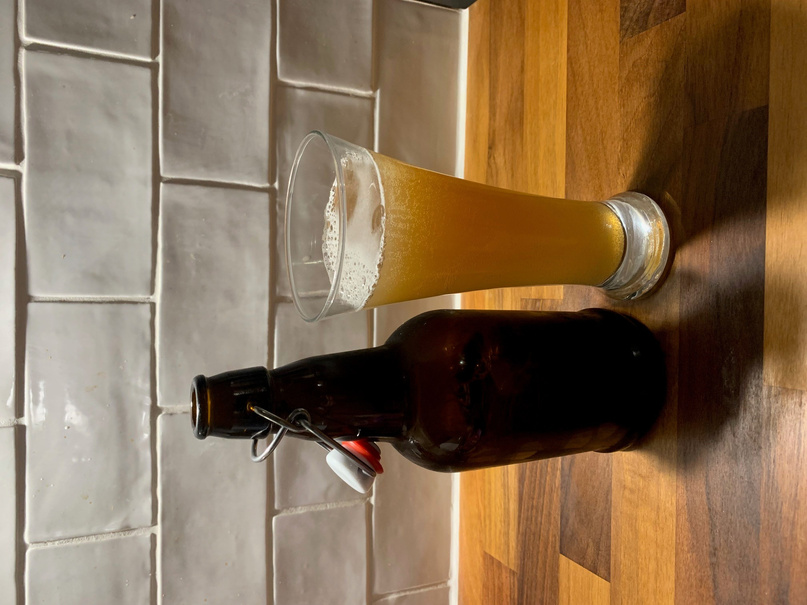
Paul's DIY Dog
Restaurant takes the heat for bottomless ad
ASA ruling on Bill's Restaurants Ltd
A restaurant in London was recently told by the Advertising Standards Authority (ASA) that their ads breached the Advertising Codes on the basis that they condoned and encouraged the excessive consumption of alcohol and unwise drinking, and were socially irresponsible.
Bill’s Soho, one of the chain’s London restaurants, had seen last summer’s weather as a marketing opportunity and issued adverts headed “Bottomless Prosecco to beat the heat! [two flutes of champagne emoji]”. The body of the ad featured the sub-heading “ENJOY BOTTOMLESS PROSECCO THIS HEATWAVE WEEKEND” and the text stated:
“Select any item […] and enjoy 90 minutes of unlimited prosecco for just £16.50 per person. What else could you wish for? Our all day brunch menu features naughty favourites […] all washed down with a lovely glass (or several) of prosecco”.
A complaint was issued with the ASA, on the question of whether the ads were socially irresponsible because they implied, condoned, or encouraged excessive consumption of alcohol.
Bill’s made the following main comments in response:
- They are a restaurant chain which is generally not perceived by the public as being associated with the excessive consumption of alcohol or as a purely “drink based” establishment.
- The ads made it clear that the Bottomless Prosecco promotion was exclusively available with the purchase of a meal, with the majority of the wording being used to describe and promote the food element of the promotion.

- The phrase "a lovely glass (or several) of prosecco" implied that some consumers would have only one glass with their meal. There was no emphasis on the word 'several' (e.g. through the use of an exclamation mark).
- They did not feel that the whole phrase, in context, encouraged excessive drinking.
- However, they did accept that the ads’ use of the phrase “beat the heat” or to enjoy bottomless prosecco “this heatwave weekend” could be interpreted as encouraging consumers to drink prosecco in the hot weather.
ASA Ruling on Bill's Restaurant (cont'd)
- They did not intend to encourage or promote excessive drinking or irresponsible behaviour by using those phrases and would not use them in future.
The ASA took the view that the phrase “a lovely glass (or several) of prosecco”, within the context of the offer’s 90-minute duration, condoned and encouraged excessive drinking. In particular, it was noted that “several” would be understood to mean at least three glasses, and that the term’s vagueness risked implying that consumers might lose track of the number of glasses they had consumed.
The ads further positioned the unlimited alcohol offer as a way of coping with the heatwave and implied that prosecco, because it was refreshing, was well suited to consumption in heatwave weather, (which was at odds with government advice). The ads therefore irresponsibly encouraged excessive drinking in circumstances where the excessive consumption of alcohol was especially dangerous.
Bill’s Soho were asked to ensure their ads contained nothing likely to lead people to adopt unwise styles of drinking, including excessive drinking during a heatwave.
Brands should be careful when issuing ads offering bottomless drinks, in particular during a specific duration and in extreme heat. I have to admit that this decision does make me consider my drinking habits, as I don’t believe a glass of prosecco has ever lasted me 90 minutes!...
About the ASA
The Advertising Standards Authority was established in 1961 and is the UK’s independent advertising regulator.
They respond to concerns and complaints from consumers and businesses and take action to ban ads which are misleading, harmful, offensive or irresponsible.
As well as responding to complaints, the ASA monitors ads to check that they are following the rules.
The types of ads they deal with include:
- Press ads
- Radio and TV ads (including teleshopping presentations)
- Ads on the internet, smartphones and tablets
- Ad claims on companies’ own websites
- Commercial e-mail and text messages
- Posters/billboards
- Leaflets and brochures
- Ads at the cinema
- Direct mail
Complaints are assessed against “prioritisation principles” to determine the most appropriate course of action. Under these principles, the ASA will:
- consider what harm or detriment has occurred or might occur;
- balance the risk of taking action versus inaction;
- consider the likely impact of intervention; and
- consider what resource would be proportionate to the problem.
The ASA will contact the advertiser whenever a complaint indicates that an ad might have broken the rules, but may not start a formal investigation into every case (around 80% of complaints do not raise any problems under the rules).
In 2021, they resolved 43,325 complaints relating to 22,115 ads.
Source: https://www.asa.org.uk/
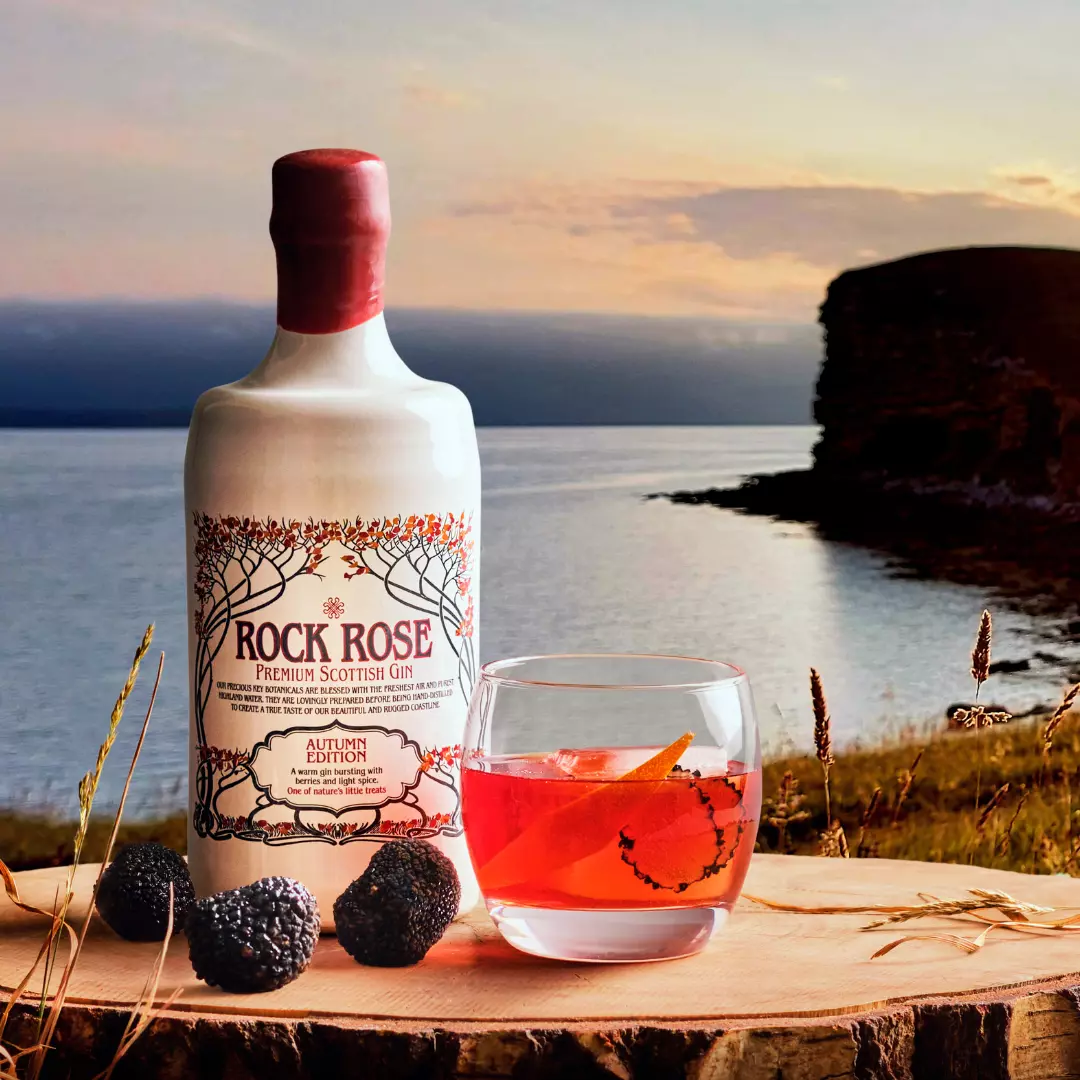
Q&A with Martin Murray
Owner and Distiller at Dunnet Bay Distillers
Here at Scran & sIPs™ we love hearing about young brands that already have a legacy. I understand the Dunnet Bay story begins before the company was born – back in your student days. Can you tell us more about how things all started?
Dunnet Bay Distillers Ltd is a family-owned business established and managed by myself and my wife Claire. We are both native to Caithness and when we were at university we would dream about one day opening a local business.
After graduating I went down a chemical / process engineering career route in an offshore plant within the oil and gas industry and Claire turned towards hospitality and tourism. When the opportunity presented itself for both of us to return home to create a business, the idea of Dunnet Bay Distillers was settled. The aim was to create jobs in Caithness so that we could live, work and raise a family in our home village.
You had been living and working in France, but dreaming of doing business in Scotland, what enabled you to pursue the dream?
We had always dreamed of owning our own distillery, but were financially constrained due to The Excise Act, which stated that the minimum size still you could operate to get a licence to distil spirits was 1,800 litres. In 2008 that size of still would have cost over £75,000, so it was sadly always too big and too expensive for us to afford.
Thankfully that all changed when Sipsmith successfully challenged the law as they wanted to set up a new business distilling gin in a small 300 litre traditional copper pot still. The change in law blew the gin market wide apart and changed the face of the industry forever. It is now commercially viable for people to distil gin on a small scale for the first time in centuries!
The change in the law gave us the opportunity to move home to Caithness, build our own house and build Dunnet Bay Distillery. Once the distillery’s first copper pot still was installed we perfected the recipe for Rock Rose Gin and aimed to make about 10,000 bottles in our first year of operation.
We ended up making and selling 9,000 bottles in the first quarter of distilling and the first batch of Rock Rose Gin sold out through pre-orders within forty-eight hours of release. That was in 2014 and we have never looked back.
Your copper stills – Elizabeth and Margaret! – are beautiful, but huge, bits of kit. How did you know where to start?!
‘Elizabeth’ and ‘Margaret’ were made by John Dore & Co. Ltd, the oldest still maker in the world. I had lots of experience working with big process equipment in my previous career, and was delighted to work with John Dore & Co. Ltd to design the two ‘girls’.
Similar to ship building, it is a tradition in distilling to give your still a lady’s name. Our first still was named ‘Elizabeth’ after Her Majesty Queen Elizabeth The Queen Mother. She was a frequent visitor to Caithness, spending three weeks in August at the nearby Castle of Mey, then returning every October to escape from the pressures of a busy royal life. Her favourite drink was rumoured to be a gin and Dubonnet, so it was only right to name our first still in her honour.
The second still is called ‘Margaret’ after another very special lady, Claire’s mum, Margaret Calder. Margaret is the distillery’s production supervisor. She has been an absolute super star to work alongside, bringing organisation and control to the initial unstructured chaos. With a methodical and organised mind and a wicked sense of humour, Margaret has implemented structure and routine into Dunnet Bay Distillery, helping the business to grow and diversify.
Your technical knowhow has clearly proven invaluable – but what about the marketing, more consumer-focused side of the business? What are some the valuable lessons you’ve learned here?
Claire’s burgeoning background in hospitality and tourism meant that her skills were well suited to developing and managing the customer focussed side of the business – aspects like marketing, retail, tours, and events.
Dunnet Bay Distillers Q&A (cont'd)
As a duo, we never dreamed that one day we would employ 16 people and win Scottish Gin Distillery of the Year at the 2019 Scottish Gin Awards and see the Company’s multi-award-winning Rock Rose Gin and Holy Grass Vodka distributed and enjoyed by people all around the world!
Importantly, both of us have learnt to trust our own instincts, take advice where we need to, and listen to the team who understand the business and its customers.
The current economic climate is challenging for business owners – what advice would you have for someone starting out now?
We often say that running your own business is a bit like being on a roller coaster ride. You enjoy the ‘ups’, and just deal with the ‘downs’ knowing that there is a way to resolve whatever set-back you are currently experiencing and that things will eventually work themselves out. However, it’s incredibly important to trust your own instincts and do what is right for you, your team, and the local community. It’s key that as a team you develop your own unique culture and resist the temptation to implement a boring, uniform corporate policy. However, we cannot stress this enough, don’t be afraid to innovate!
You employ 16 people in Caithness, can you tell us a bit about the role of Dunnet Bay in the local community?
We are incredibly proud that Dunnet Bay Distillers Ltd has a history of engaging with a wide range of community partners. We often run events and educational initiatives to develop employment opportunities for young people and to promote the natural and cultural heritage of the area and the history of gin and vodka as a key resource.
We also work with many local artists and craftspeople, through competitions and under commission, to create artwork for display and use in labelling, our distillery, shop and tasting room.
Our ‘Inspired by Gin’ exhibition in 2019/20 was aimed at attracting out-of-season tourists when few attractions in the North Highlands were open to the public. We used the distillery’s Visitor Centre to display artwork submitted by artists and craftspeople from across the UK including paintings, ceramics, textiles, glass, and sculpture.
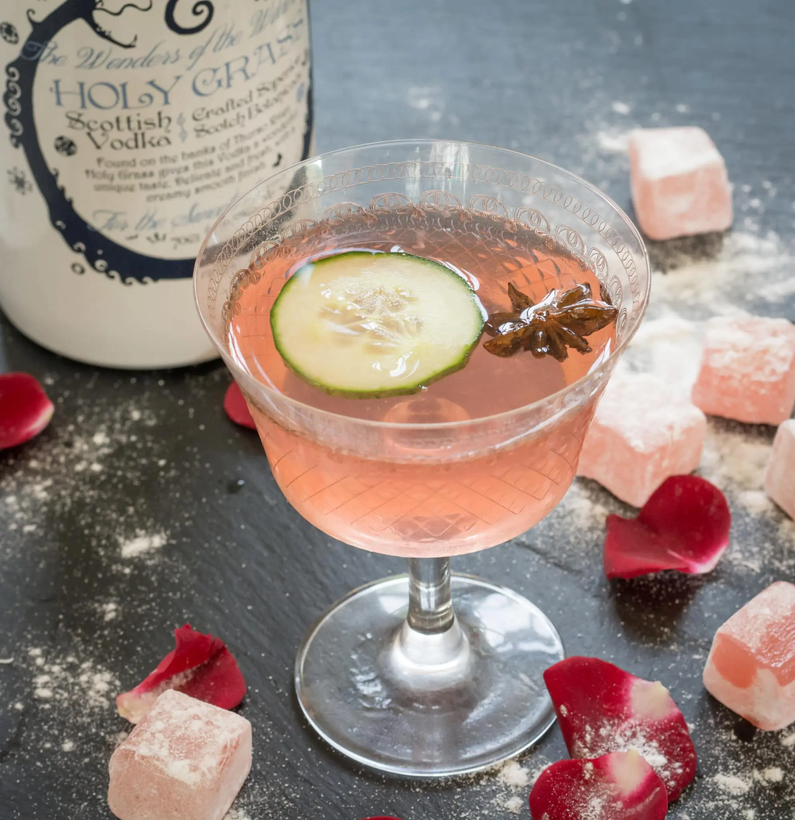
We got together with several artists and allowed them to interpret the theme ‘Inspired by Gin’ in a variety of ways, from the botanicals used to make Rock Rose Gin, the landscape of Caithness to the history of gin.
The exhibition included artwork for sale, workshops, and artist talks. Following that success we have just opened our 2022/2023 winter exhibition ‘Holy Grass Hero’ commemorating Robert Dick the Victorian era Thurso baker, botanist and local hero who rediscovered Northern Holy Grass (Hierochloe borealis) growing on the banks of the River Thurso which is used to make our Holy Grass vodka range.
We’ve read that your goal is “to create spirits which reflect the Caithness way” – can you explain what you mean by this?
Dunnet Bay Distillery is a magical place that makes spirits which are inspired by and embody Caithness, its unique cultural and natural heritage, and its people. Given this, our ethos is based on six core values:
- Authenticity
- Flavour
- Heritage
- Innovation
- Sustainability
- Tradition
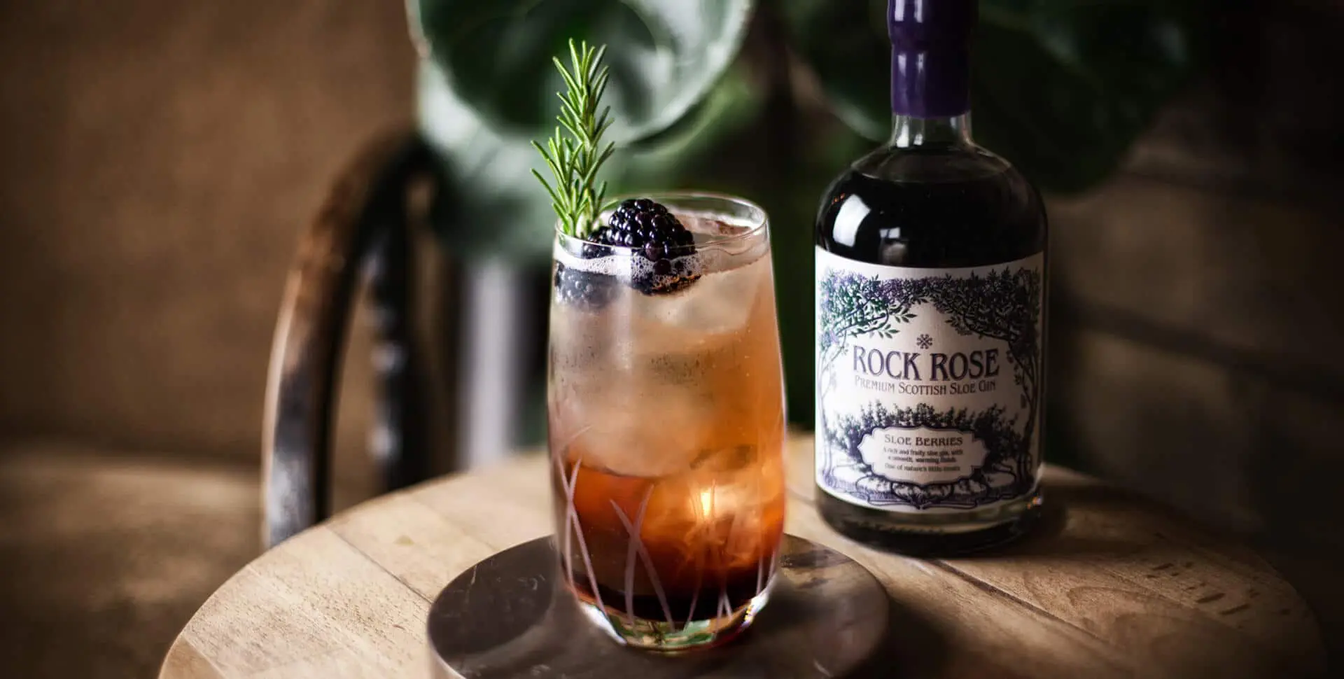
Dunnet Bay Distillers Q&A (cont'd)
Authenticity – We ensure to hand distil slowly, thoughtfully, and passionately in order to create exceptional products using traditional copper pot stills, Highland water and hand-foraged botanicals sourced from the spectacular cliffs of the Pentland Firth, Dunnet Forest or grown in the distillery's own garden.
Flavour – Rock Rose Gin is like other gins in some respects because it does have a predominant juniper flavour and all the traditional ingredients you would expect to find in gin.
However, what makes the flavour of Rock Rose Gin so special is the carefully selected collection of local and traditional botanicals used by Dunnet Bay Distillers to make our gin. In fact, the name Rock Rose comes from one of these botanicals, Rhodiola rosea, commonly known as the rose root, which I discovered on my first botanical forage along the Caithness cliffs. Rhodiola rosea is a real earthy rose which adds a delicate floral note to the gin.
Rock Rose Gin is also made with other interesting ingredients like rowan berries, which grow across the road from the distillery in Dunnet Forest and blaeberries which bring a nice jam taste to the middle of the drink, then you’ve got lemon verbena and Bulgarian juniper that add a nice lemon sherbet finish to the gin.
Interestingly, Holy Grass Vodka is also a celebration of the flavour of local produce and ingredients, the spirit is infused with a carefully crafted vapour of Highland apples and apple juice, to complement the sweetness of the Holy Grass. The result is a delicate and fresh vodka with a creamy smooth finish.
The hero botanical Hierochloe odorata is a delicate, sweet-scented grass known by several common names such as Holy Grass, Bison Grass, Sweet Grass, and Vanilla Grass.
Holy Grass is one of the United Kingdom’s rarest plants. It is only found growing in a few places in Scotland including beside the banks of the nearby Thurso River.
Heritage – The different botanicals we use to make Rock Rose Gin and Holy Grass Vodka are predominately chosen for the flavour they will add to our spirits but where possible we also like to use botanicals such as rowan berries that have stories that reflect the cultural and natural heritage of Caithness attached to them.
For instance, did you know that the rowan tree is associated with the Norse god of thunder Thor, who our nearest town Thurso is named for? According to Norse mythology, Thor once used a rowan tree to pull himself from a river to safety, thus rowan trees are considered in old Norse areas of the world to be holy trees and trees of protection.
Caithness was settled by Vikings from Norway from the mid-9th century AD onwards, so stories like this are a great way to showcase both the natural and cultural heritage of Caithness, making a drink of Rock Rose Gin or Holy Grass Vodka a little bit of history, myth, and magic in a glass!
Innovation – We are not afraid to innovate whilst remaining true to our core values of Authenticity, Flavour, Heritage, and Tradition. Innovation extends from our new recyclable packaging, ever developing guided tour offer and the creation of new spirits.
Sustainability – Our independent family-owned business provides much needed employment in a fragile rural economy. We generate our own electricity using solar panels on the distillery roof and were proud to offer the first gin available in fully recyclable pouches that can be returned to us freepost via standard Royal Mail.
Dunnet Bay Distillers Q&A (cont'd)
Once at the distillery, the pouches will be passed on to be upcycled into new items. We also use local botanicals and Highland water in the production of our spirits.
Tradition – Our bespoke pot stills have been uniquely designed just to create our spirits. Using a traditional handmade copper head along with botanical vapour basket, it is a small batch process of 500 litres. This ensures tremendous care can be applied to achieve best results.
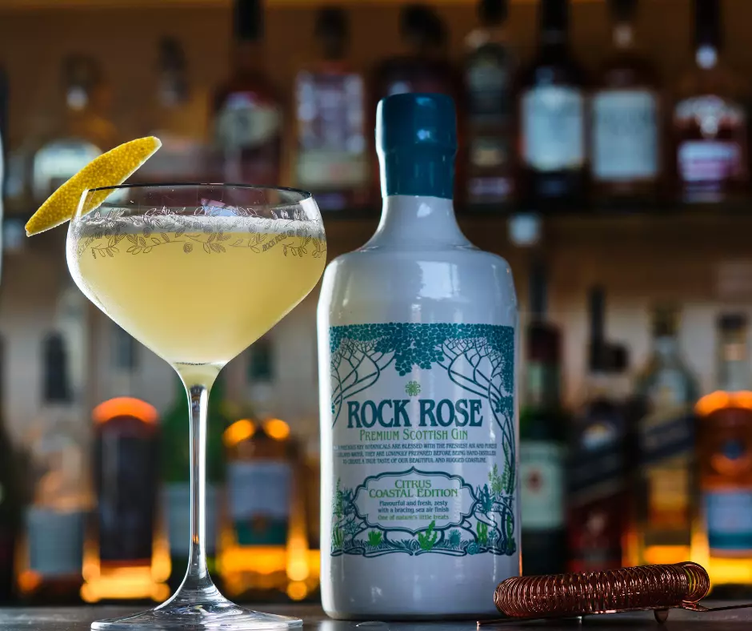
2023 marks your tenth anniversary – congratulations! How are you planning on marking this milestone?
That is a surprise! You will have to visit our website www.dunnetbaydistillers.co.uk and social media pages to find out what exciting products and events we have planned. Or better yet, come visit us in person!
Finally – the festive season is well and truly upon us – what seasonable Dunnet Bay tipples would you recommend to our readership?
Our newest gin – Smoked Orange – created by our ScotGrad Scheme funded distiller Craig Chambers, is very Christmassy. This gin uses fine Lapsang Souchong tea to deliver smoky notes to enhance zesty organic orange peel, which is complemented by tangerine sage and lemon verbena grown in the geodome at Dunnet Bay Distillery.
For vodka drinkers our Holy Grass Vodka Cold Brew Coffee Edition is perfect for Christmas and the New Year. The hero botanical Holy Grass which has a creamy vanilla taste is blended with ethically sourced coffee from Ovenbird Coffee Roasters in Glasgow to create a lovely dark chocolate and vanilla spirit, which can be used to make a fabulous Espresso Martini.
We’ve also got a range of fantastic festive cocktail recipes on our website: Dunnet Bay Distillers Cocktails & Recipes

Country in focus – Benelux
The Benelux Union is a politico-economic union between Belgium, Luxembourg, and the Netherlands. The union was first envisaged in the year 1944 when the exiled representatives of the three countries signed the London Customs Convention, which established the Benelux Customs Union. The Benelux Economic Union came about in 1958 and became the model for future European integration. Indeed, the economic and political co-operation between the Benelux countries inspired further European co-operation and may be considered one of the forerunners of the European Union.
At the time of writing this article, the Benelux Union boasts a population of roughly 30 million residents, and a combined GDP of EUR 1.431 trillion while covering only 1.7% of the surface landmass of the EU.
In terms of intellectual property, the Benelux Union was also one of the forerunners, setting the basis for a regional unified trade mark system. The Benelux Convention Concerning Trademarks was signed on 19 March 1962 and entered into force on 1 July 1969. It also established the Benelux Trademark Office to implement the convention with an existence separate from The Benelux Union itself.
Soon thereafter, in 1974, the Benelux Treaty on drawings and designs was signed, and the Benelux Office for Drawings or Designs entered operation. It is thus that the scene had been set for regional intellectual property development, which introduced concepts such as unitary regional trade marks and designs, and seniority derived from earlier national rights.
In 2006 the Benelux Convention on Intellectual Property entered into force, replacing the multiple previous rules and conventions with a single treaty, modernising the IP landscape in the region and bringing about the current Benelux Office for Intellectual Property (BOIP). In 2021, the BOIP celebrated its 50th birthday. Although the importance of national offices has somewhat diminished in the field of trade marks and (industrial) designs with the success of the EU Intellectual Property Office and EU-wide unitary protection, the Benelux Office for Intellectual Property remains an important organisation for economic development in the region.
Trade mark filing figures have been around 20,000-21,000 for the past five years, with increased figures coming close to 24,000 applications in the most recent two years, 2020-2021.
Country in focus: Benelux (cont'd)
This article aims to take a closer look at the Benelux system and what makes it stand out in the European intellectual property family.
How is Benelux trade mark law structured?
Contemporary trade mark law in the Benelux is governed by the Benelux Convention on Intellectual Property (trademarks and designs) (BCIP) and its implementation and functioning is overseen by the BOIP, based in the Hague. The Benelux Union is also party to a number of international agreements, such as the Paris Convention, the Madrid Agreement and Protocol, the TRIPS agreement, and others.
As such, the Benelux Union has similar membership of international treaties related to the regulation of intellectual property as other member states of the European Union. For example, it is possible to designate the Benelux via International Registrations, and it is possible to claim priority from Benelux trade mark applications. Being part of the European Union (and all 3 Benelux countries are founding members of the European Economic Community) has resulted in the harmonisation of Benelux trade mark laws with that of the EU.
It is important to note that although the individual countries fall under the umbrella of the BOIP and the Benelux trade mark system, they have retained their separate court systems for proceedings relating to, for example, IP infringement. The BCIP sets out that the authority of court decisions handed down in one of the three States shall be recognised by the other two States, if the decision is no longer open to opposition or appeal by a court of cassation. The Benelux have also established the Benelux Court of Justice, which has the power to hear questions concerning the interpretation of the BCIP and its implementing regulations.
Language
The BOIP has two official languages – French and Dutch. The working languages of the BOIP are Dutch, French, and English.
Documents relating to transfers, priority, licences etc. will also be accepted, if drawn up in German.
In opposition matters, the language will normally be the working language that the application was filed in, unless the application was filed in English in which case the opponent can choose which working language (English, French, or Dutch) to rely on in the proceedings. If the application is the designation of an International Trade Mark registration, the opponent can choose the language but the applicant will be given the opportunity to disagree and choose one of the other official languages (Dutch or French).
The same language rules also apply to revocation and invalidity proceedings. The parties may also jointly choose one of the working languages of the office. The underlying principle is that the applicant cannot be forced to use a language he does not understand, but the opponent can file his submissions in his preferred language, which will then be translated by BOIP.
Registered vs unregistered rights
Under the BCIP, with the exception of owners of well-known trade marks within the meaning of Article 6bis of the Paris Convention, there is an obligation to register trade marks in order to rely on them. Or, in other words, no one may claim in court protection for a sign deemed to be a trade mark, unless that claimant can provide evidence of registration of the trade mark which it has filed.
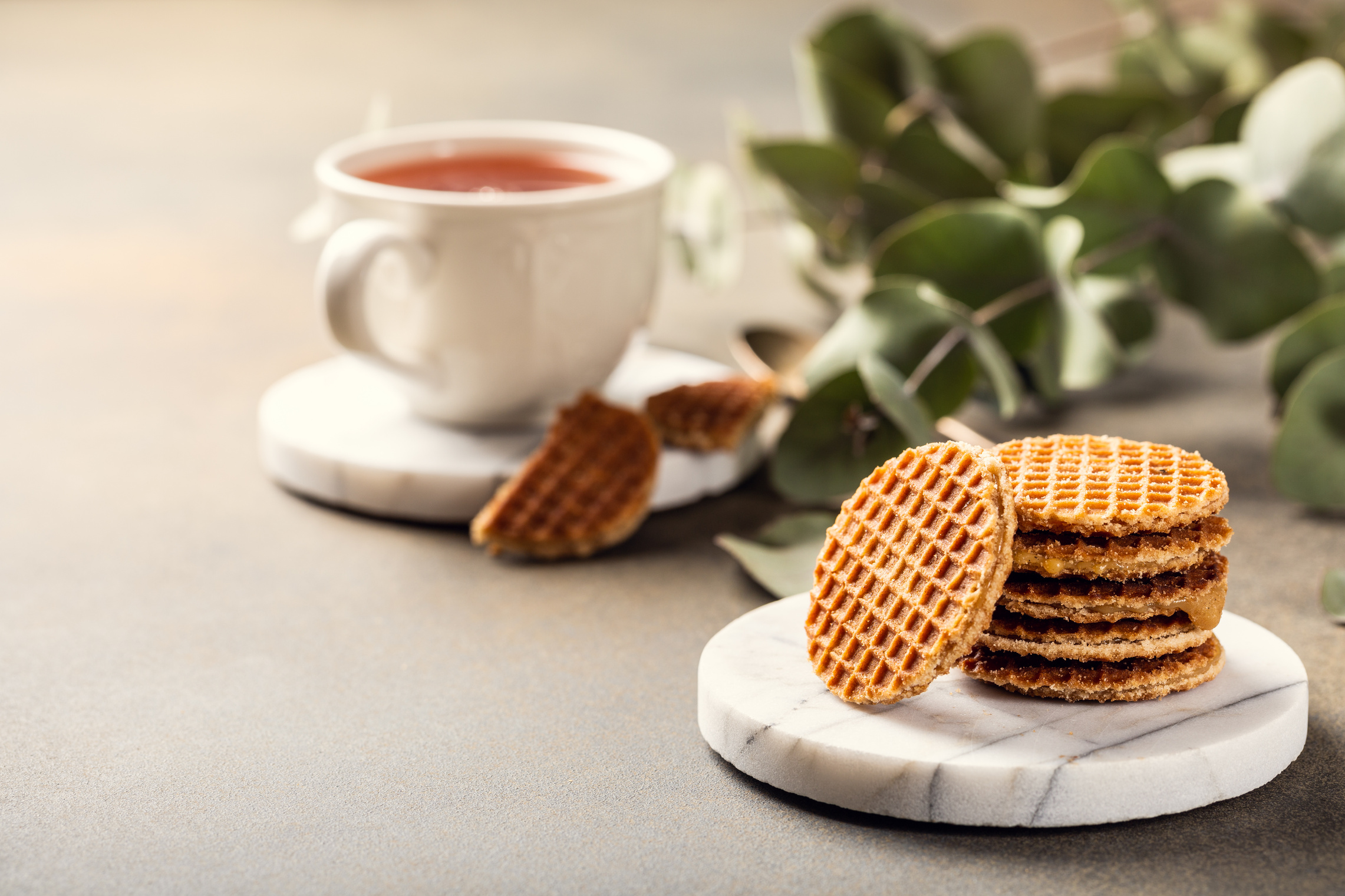
Country in focus: Benelux (cont'd)
The law does not preclude right owners from invoking “ordinary law”, which allows for objections to be raised against unlawful use of signs which are not regarded as trade marks under the BCIP.
In other words, the BCIP does not recognise unregistered trade marks. However, other unregistered rights may potentially be relied upon under the national laws of the member states i.e. Belgium, Luxembourg, and the Netherlands. For example, Belgium and Luxembourg offer limited protection to trade names and company names. The Netherlands provide limited protection for trade names. Such protection will normally be very narrow, subject to use, and limited to the geographical area where the name is used.
The registration of a Benelux trade mark, however, provides prima facie evidence of rights in the trade mark which extends across the whole Benelux territory. Although the validity of a registration can be challenged, unlike with unregistered rights, the existence of the registration does not have to be separately proven by filing evidence or demonstrating use of the mark in commerce unless five years have passed since its registration.
Representation requirements
As with the EUIPO, the Benelux office does not require a professional representative to be appointed at the time of filing the application but it does require an address for correspondence in the European Economic Area (EEA).
Any professional representative with an address for correspondence in the EEA can act before the BOIP.
If the BOIP has any reason to doubt the representative’s authorisation, it may request a Power of Attorney for confirmation. Otherwise, a Power of Attorney is generally not required and authorisation is presumed.
Examination process
Once an application is filed, it undergoes a formalities and absolute grounds examination. Following a successful examination process, the trade mark will be accepted and published for opposition purposes. The opposition period for Benelux trade marks lasts two months from publication and is not extendable.
Should no oppositions be filed, the trade mark application will progress to registration soon after the expiry of the opposition period and a digital registration certificate will be issued by the BOIP. No paper registration certificates are issued – although it is possible to order a certified copy. The usual timeframe from application to registration is 3-5 months if no objections are raised.
Accelerated registration
The BOIP offers an “accelerated registration” procedure by the payment of an official fee. In this process a registration can be granted within days. This registration can then also be used as a basis for enforcement.
However, the registration is provisional only – a 2 month opposition window and substantive examination follows the initial registration, so further refusals could be issued.
Nevertheless, the accelerated registration procedure does provide the option for quickly obtaining a registered trade mark for use in enforcement, anti-counterfeiting activities, domain name disputes, etc.

Country in focus: Benelux (cont'd)
Oppositions
As identified above, once the Benelux trade mark is published, there is a two-month non-extendible opposition period. In order for an opposition to be correctly filed, the opponent will need to list the grounds relied upon and file substantive arguments within two months.
A defence by the applicant is required in Benelux oppositions within two months of the opponent’s arguments. If no defence is filed, the opposition will succeed by default.
Cooling-off periods are available in 4 month increments, if the parties wish to negotiate. Furthermore, during the proceedings themselves extensions and suspensions are possible, however, these will be allowed at the discretion of the hearing officer. The parties can request a suspension jointly, or the office may suspend the proceedings, if it believes there are grounds to do so.
Oral hearings may be held in opposition matters either at the parties’ request, or if the BOIP deems that there are grounds for a hearing.
If multiple oppositions are filed, the BOIP will generally decide to examine the opposition the most likely to succeed first and suspend the other oppositions in the meantime.
Costs are awarded by the BOIP at the conclusion of opposition proceedings.
It is possible to appeal the opposition decision to a court of cassation in one of the Benelux states.
Revocation and invalidity
Similar procedures apply to cancellation actions which can be divided into two:
- revocation actions – on grounds of non-use of a Benelux trade mark, or if a mark has become generic or misleading through the use that has been made of it; and
- applications for invalidity (either based on absolute or relative grounds).
The main difference between the two is that a revocation action, if successful, will apply from the date of the request, whereas a declaration of invalidity removes the registration from the BOIP register with retroactive effect.
Generally, mutatis mutandis, the same rules apply to revocation and invalidity proceedings.
Duration of protection and use requirements
Benelux trade marks are registered for 10 years and can potentially be maintained in force indefinitely with the payment of renewal fees.
Following the registration of a Benelux trade mark, there is a 5-year grace period during which the proprietor can initiate use of the trade mark in commerce.

Country in focus: Benelux (cont'd)
Once the grace period ends it is possible for third parties to initiate cancellation proceedings and apply to revoke the trade mark registration on grounds of non-use.
One immediate consideration that flows from the foregoing is that as long as a Benelux trade mark is within its grace period it will form a valid basis for opposition or enforcement through infringement proceedings regardless of whether or not the trade mark has been put to genuine use in the Benelux.
As such during the first five years from the registration of the trade mark relied upon, it will not be possible for a defendant to rely on the non-use of a Benelux trade mark to defend itself.
Conversely, once a Benelux trade mark has been registered for five years, it will be possible for the defendant to request proof of use at an early stage in proceedings and the onus will be on the owner of the trade mark to furnish evidence of use. Whether or not a trade mark has been put to “genuine use” in the Benelux is examined on a case-by-case basis and will depend on the nature of the goods and/or services in question and the peculiarities of the market concerned.
Evidence of use will be acceptable from the relevant preceding five-year period, e.g. as calculated from the date of the filing of an opposition. As a general rule evidence of use from the three months immediately preceding the relevant date will not be considered, so as to avoid situations where a trade mark is used only for the purposes of providing evidence.
It is also possible to provide justifications for non-use, e.g. when the use of a particular mark has been delayed due to reasons outside the proprietor’s control. Such reasons could relate to, for example, in the context of medical drugs, delays in obtaining approval from national health authorities for the marketing of the products.
Preparations made for starting to use a trade mark in commerce may also be taken into account.
Priority and Seniority
It is possible to rely on a first filing of a trade mark application in the Benelux as a basis for a priority claim in overseas territories during the first six months following the filing of the application. Claiming priority allows the effective date of validity of a subsequent application to be dated back to the original filing date of the first application. Overseas priority will also be recognised when filing Benelux trade marks.
Seniority is a unique feature of the EU trade mark system. It has its roots in the process of harmonisation of the internal market and allows for the information (including the date of validity) of earlier national registrations for the same trade mark be recorded against a subsequently filed EU trade mark.
The effect of recording a seniority claim against an EU trade mark is that the EU trade mark will obtain the same effective date of validity in relation to the goods and/or services in question in the particular territory concerned as that of the original national registration. The national registration can then be allowed to lapse in favour of savings on renewal costs. It is possible to record multiple seniorities against an EU trade mark.
Seniority can be claimed from Benelux trade marks. The Benelux system also recognises “seniority” of earlier Dutch, Belgian, and Luxembourgish registrations prior to the entry into force of the Benelux trade mark system.
How to make your brand stand out
by StudioLR
At StudioLR, we pride ourselves on being the gutsy creative agency. However, we’ve raised a few eyebrows with all our talk about guts. Particularly when we promised our clients we’ll serve up their guts on a plate. But it’s really not as aggressive or messy as it sounds. At StudioLR, ‘guts’ stands for two things – substance and bravery. If you’re looking to sharpen up your brand and stand out, here’s where we’d start…
Part 1. Strategic substance (AKA: Getting to the guts)
Having guts doesn’t mean shouting the loudest, or being the brashest brand in the room. It’s about knowing exactly what you stand for, and having total conviction in it.
It’s a question of focus. Sharp, single-minded focus. What is the one thing you want to be famous for? Don’t confuse narrow with small – a sharp, singular focus will propel you much further than a vague notion. Like a powerful power hose, rather than a sad puddle.
Here’s an example…
Imagine you just wanted your business to behave and be known as ‘good’. Seems fairly safe territory, doesn’t it? But think of the resources you’d have to pour into covering all that vague ground. And think of the contradictions you’d have to make to your team and your customers…
You’d have to prove you were fast and responsive (because that’s ‘good’) but also that you were considered and fastidious with the details (also good).
You’d have to prove you were big and reliable but also small enough to be personal and to really care.
You’d have to prove you were interested in unity, teamwork, and community but also that you had ‘stand out’ and valued individualism.
To be useful, brands have to be much sharper than people.
You’re probably familiar with these ‘everything to everyone’ sorts of strategies. The definition of ‘good’ is so wide that it’s almost impossible to convey and is an instantly-forgettable brand.

How to make your brand stand out (cont'd)
Brands built on vagueness become walking contradictions that stand for nothing. They’re more expensive to build as they have to cover so much ground. Their employees don’t know what’s expected of them – so they don’t give a consistent service. And their customers don’t feel anything about them beyond the function of the product.
People are walking contradictions. We all are. But people care about people. Nobody inherently cares about your brand. Nobody will devote the time to really get to know every side of your brand.

A singular, sharp focus will make you stand out, be memorable and easier for people to understand. And, if you’re really lucky, easier to relate to too.
Getting to that singular focus takes a lot digging and poking around deep in the workings of your organisation, asking awkward questions about your leader’s vision, your competitive landscape, and your customer’s wishes. But once we get it, the rest is (almost) easy…
Part 2. Creative bravery (AKA: Having guts)
Armed with a single, sharp focus, we put our efforts into magnifying, dramatising, and following through on it – 100%.
The beauty of focus is that it takes some of the subjectivity out of judging creative work. And it takes some of the personal risk out of making ‘brave’ work.
We’re no longer looking for ideas we ‘like’, or the ‘best’ ideas. We’re looking for ideas that are right and ideas that are the most [insert your brand focus here].
For example…
If your brand was focused on freedom (like Harley Davidson), whether you’re judging a new product idea, a sponsorship opportunity, a new product name, an ad campaign, brand identity development – your question is always ‘Is this the most free?’ rather than ‘Is this the best?’ or ‘Do I really like this?.
Not everyone in your team has to like it. But everyone should remember it. And see how it fits your brand’s sharp focus. Remember, camp-splitting is usually the sign of a high-impact idea – it’s hard to have a genuinely strong opinion on a bland idea.
Focus gives you a license to think big, and to create surprising, eye-catching, stand out work. Safe in the knowledge that it’s underpinned by a sound, consistent strategy. It’s not about a marketer’s ‘bravery’, or willingness to gamble with their career. It’s about their guts to believe in their decisions, to shun vagueness, and to commit to building a sharp, valuable brand.
Want to create a stand out brand? Contact sarah@studiolr.com
Thank you to Sarah Baillie, Account and Marketing Manager and the whole StudioLR team for providing this insightful article
Q&A with Julie Trevisan-Hunter
Marketing Director at The Scotch Whisky Experience
Your mission is to “make the world fall in love with Scotch whisky”. So, first things first, what makes a whisky ‘Scotch’?! And what makes it so loveable?!
Scotch whisky is the simplest of drinks with only three very natural ingredients. We are blessed in Scotland with pure, soft water, and the geography and climate to grow golden fields of barley, add the final ingredient of yeast and that’s all you need. There are, however, two other critical components that are essential in making Scotch unique. One is time. Scotch must, by law, be matured here in Scotland for at least three years, and the oak which is chosen together with careful maturation has significant impact to the final flavour and character.
The second is people. I’ve met thousands of people who work in the Scotch whisky industry and each one plays a critical role in how our whisky is crafted, the quality of the spirit, the choosing of casks, and then all the roles that bring Scotch from the cask in the warehouse to the dram in our glass.
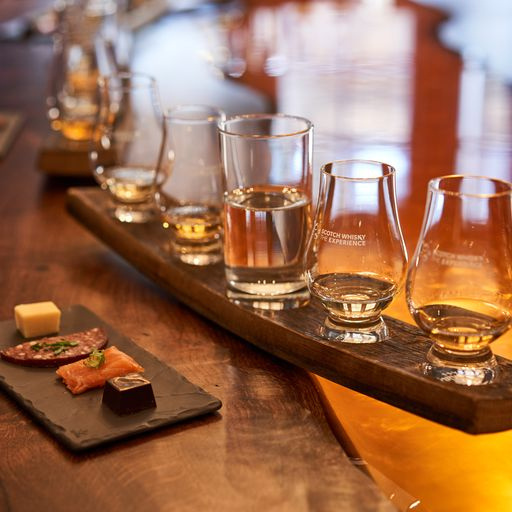
Here at Scran & sIPs™, we love talking to established Scottish manufacturers and more fledgling businesses alike. The common factor with between them is pride in their Scottish heritage – much like yourselves – why do you think this is the case?
Working in the tourism side of Scotch whisky I have a very strong view on this. Many small countries have incredibly strong identities, but I can’t think of any that are so internationally recognised as Scotland. Sometimes these icons of Scotland are dealt with in a heavy-handed manner; we can all think of occasions when tartan, whisky, castles, golf and our history have made us cringe with the stereotypes, but the reality is that for the few times things don’t hit the mark, there are millions of interactions with more authentic and inspiring examples.
I believe that Scotland is more global than we can even imagine. For the size of our country it’s incredibly well known, and loved, throughout the world. Why would any business not make the most of their Scottish roots?
You have said you want to showcase Scotch whisky to international visitors – are there any nations with which The Scotch Whisky Experience is particularly popular? And why do you think that is?
Our visitors are drawn to us based on the incredible reputation that Scotch has developed over the centuries. Scotch whiskies started to be recognised as brands back in the 1800s and some of the pioneering whisky makers and merchants of the day began travelling globally to spread the word with a few of their finest cases for sampling. You could say that they planted the first seeds to inspire our present-day global visitors.
A strong reputation was built up with our close neighbour France, strengthened by our “auld alliance” and shared history. We have always had a strong French market and they are particularly interested in our whisky and food matchings! Beyond Europe, Scotch also quickly spread to the USA, again with a backdrop of Scottish heritage and feeling of nostalgia to those with Scottish heritage.
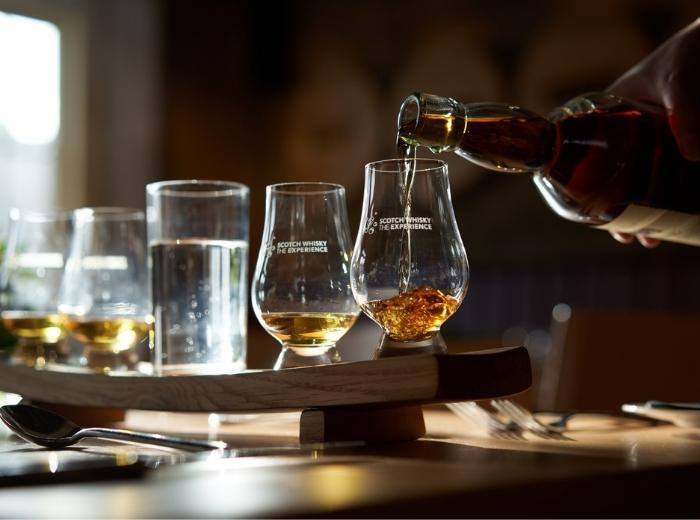
The Scotch Whisky Experience Q&A (cont'd)
The US market is strong for us and has been our biggest market by far in 2022. Our US guests love the culture and history behind the drams and how the distilleries are connected to the wider Scottish landscape. A market which is yet to return to us is Asia and in particular China which has shown incredible growth in tourism over the past decade.
There are fantastic distilleries open to the public across Scotland – what more would visitors learn by enjoying your interactive experience?
We are very clear that we want to tell the story of Scotch in a way that does not seem exclusive and only something for the “initiated”. The way we tell the story of Scotch is light-hearted, interactive and touches on culture, geography, history and heritage, as much as the production and tasting of the dram.
We are fortunate to be in a unique position covering all Scotch whiskies, and, as a result we have quite a different market of visitors to the distillery visitor centres. The privilege of introducing Scotch to those who are not necessarily already whisky drinkers is what really makes our job feel worthwhile.
Another common theme we are seeing amongst our clients and contacts is the desire to support their local communities. Does the Scotch Whisky Experience run any CSR programmes and if so, can you tell us a bit about them?
As part of our Gold Award with the Green Tourism scheme we ensure that we balance our partnerships and activities between work to support people, our own team and our communities, and our environment both here in Edinburgh’s Old Town and throughout Scotland.
Our local Edinburgh partners are the Grassmarket Community project and The Scottish Wildlife Trust. Both have sites within a few minutes of our home on Castlehill. Nationally, we work with SAMH and The John Muir Trust.
We also have an ongoing programme to support the charities and community groups which are important to our team through personal and family connections. Each year we donate hundreds of tickets to fundraising activities through our staff request programme.
Some of our readers are whisky connoisseurs and would no doubt love the Scotch Whisky Experience but would it also be relevant for newcomers to the world of whisky?
Our main tour experiences are the perfect introduction to Scotch whisky, either the Silver or Gold Tour give a real appreciation for how and where the different types of Scotch whisky are produced and how best to appreciate them.
Whisky fans tend to gravitate to our Amber restaurant and whisky bar. It’s a lovely open and inclusive place to enjoy whisky with a stunning range of over 400 whiskies, together with whisky-based cocktails, and whisky and food matching. The restaurant never leads too strongly with whisky – it just sits there gently as an option so it allows whisky fans to enjoy the bar and restaurant with friends and family who may not be quite as committed to the amber nectar as they are!
We also developed a fantastic weekly tasting called Tasting Tales, which does just that! The tales of four whiskies are presented by one of our brilliantly knowledgeable and enthusiastic team, through a special theme and stories which tie them together.
The Scotch Whisky Experience Q&A (cont'd)
With a little food taster to accompany each, this tasting is perfect for whisky and food lovers who are interested in a different take on things to the usual tastings.
The festive season is truly upon us. With this in mind, what would be your ultimate Christmas Scotch whisky you would recommend?
That’s a tricky question! There’s a different perfect whisky for everyone, so I’ll just have to give you some of my favourites for this Christmas. I love an Old Fashioned cocktail at this time of year and I’m planning on using Highland Park this year. We’ve just managed to source some Aberfeldy 18 year old finished in red wine casks so that’s the dram that Santa will be enjoying, I’m sure it will pair well with a mice pie, but I’m not so sure about the pairing with Rudolf’s carrot!
Other brilliant themes for a Christmas dram are; Glenfiddich – the distillery which first ran its still on Christmas Day 1887, Glenmorngie’s “Tale of Winter” – a liquid version of a cosy Christmas jumper, and Dalwhinnie Winter’s Gold whose spirit is distilled in the coldest winter months. All bang on theme for the festive season.


Obtaining plant variety protection in the UK post-Brexit
Plant Breeder’s Rights (PBRs) or Plant Variety Rights (PVRs) are a form of intellectual property that protect new plant varieties.
PBRs are granted for varieties that are (a) distinct, (b) uniform, (c) stable and (d) new. Once granted, PBRs provide the rights holder with the exclusive right to commercialise the propagating material for up to 25 years (30 years for trees, vines or potatoes). As such, PBRs are an important right for plant breeders looking for a return on their significant investment in the generation of a new variety.
Prior to Brexit, it was possible to protect a new variety in the UK through either a UK Plant Breeder’s Right (UK PBR) or a EU-wide Community Plant Variety Right (CPVR). Following Brexit, only UK PBRs are available to breeders wishing to obtain protection for their new variety in the UK.
In this article we have outlined some of the common questions around obtaining plant breeder rights in the UK following Brexit.
What is the process for filing a UK Plant Breeder’s right?
From 1 January 2021, breeders wishing to obtain protection in the UK for their new variety have had to make an application for a UK PBR. This can be done alongside a separate application for a CPVR, which must be made to the Community Plant Variety Office (CPVO).
An application for a UK PBR must be made to the Animal and Plant Health Agency (APHA). The requirements to file for a UK PBR are similar to that of a CPVR and are as follows:
- Signed application form
- Completed technical questionnaire
- Power of attorney (if we are going to act for you, but you can apply yourself if you have a UK address)
- An assignment of rights by the breeder (if you are not the breeder)
- Any documentation showing authorisations such as marketing consent (for genetically modified plants).
- A customs fee may also apply if the application requires imported plant material.
Can I convert a CPVR application to a UK PBR application?
All CPVRs granted by 31 December 2020 were automatically converted into a UK PBR. A UK address for these converted CPVR rights will not however, be required until after 1 January 2024. The duration of the converted UK right will be calculated from the date the CPVR was granted.
The deadline for converting a CPVR into a UK PBR was 30 June 2021, so conversion is no longer possible and all new varieties need one UK PBR application and a separate CPVR application.
Does the UK accept distinctiveness, uniformity and stability (DUS) tests carried out abroad?
The UK still accepts EU reports for most species for variety listings and for plant breeders’ rights, but only if they are of comparable quality to UK DUS tests. The exceptions are agricultural, amenity and vegetable species, where EU reports are only accepted if testing started before 31 January 2020.
If DUS tests are being conducted or have been completed in another country, it may be possible to purchase the report.
However, if the report cannot be purchased or the report is not acceptable, it will be necessary to prepare a UK DUS report.
The EU no longer accepts UK DUS tests.
Plant variety protection (cont'd)
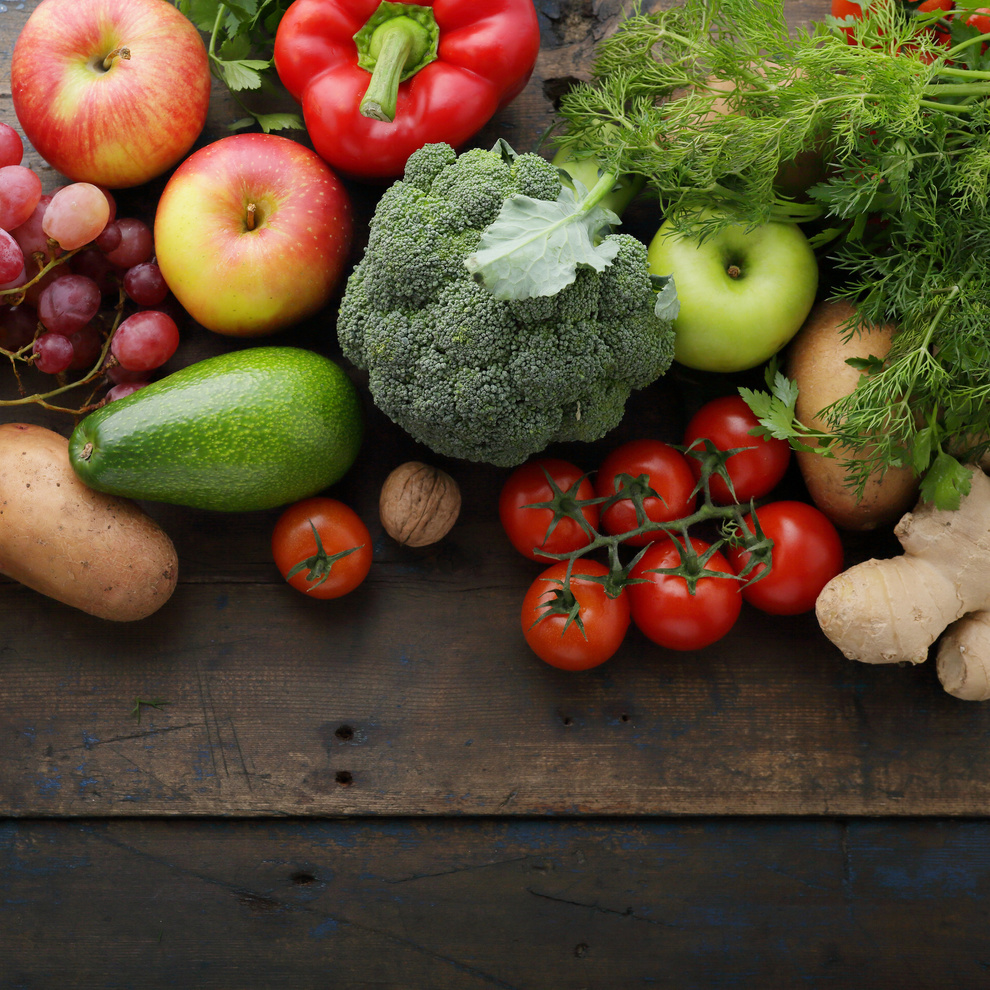
Are renewal fees payable for PBRs?
Renewal fees for most UK PBRs were abolished in 2006, so annual renewal fees are not payable for most UK PBRs. Only a handful of plant varieties (e.g. potatoes, herbs, swede and ornamental species) still require the payment of an annual maintenance fee in the UK.
Annual renewal fees continue to be required for CPVRs.
How do I add my variety to the national list?
New plant varieties must be added to the UK’s national lists if they are to be marketed in the UK. Prior to Brexit, the Plant Variety Rights and Seeds Office would add a new variety to the European Commission’s list, known as the Common Catalogue. This meant that the new variety could be marketed throughout the EU.
However, the UK National List has now been deleted from the Common Catalogue. As a result, it is necessary to separately register new varieties on the UK National List.
How do I obtain plant variety protection in the EU?
There have been no changes to the application process to obtain a CPVR. However, if you are UK-based (with no address in the EU), you need a EU representative not only to make an application for a CPVR, but also to pay the renewal fees once the right is granted. Please contact us for more information on how our Luxembourg office can act as your EU representative.
Q&A with Cammy Bowden
Operations Director at Brew Toon
Congratulations on your triple win at the recent Scottish Beer Awards; and thanks for participating in our special festive edition of Scran & sIPs™! What does Christmas preparation look like at Brew Toon HQ?
Many thanks, we’ve really enjoyed being part of the Scottish Beer Awards and were pleased to have picked up another 3 awards at this year’s event. We were particularly proud of the gold award won for our raspberry cream ale (Raspberry Carronade) for “Best Fruit-Forward Beer” as this is the 2nd time in 2 years it’s won this trophy, so it gives us confidence that we’re doing something right here.
Christmas is usually a really busy time at Brew Toon with festive markets, online sales, and of course – keeping our trade suppliers well stocked for Christmas nights out, so we’ll be working really hard to ensure we keep up with the demand.
You’ve taken over the site of the old Hunter & Sons Brewery. What influence does this legacy have today?
It had a big influence on us when we first decided the location of our brewery as we valued the historic roots of the site.
The thought of us being able to brew beers on the same land as a brewery from 100 years ago, and to put Peterhead back on the map for producing Craft Beer, was something that really excited us. In the spirit of ongoing innovation, we’ve just released 5 special beers to celebrate 5 years in brewing. They are all packed with interesting new flavours so this was a great opportunity for us to get creative!
You are vocal about your passion for brewing and attention to detail – how does this manifest itself in your products?
Brew Toon was founded with the aim of producing unique craft beers that are packed with quality flavours and unique character. From our 10% Blueberry Muffin Imperial Stout, to our 5% Rhubarb & Strawberry Sour, we try to brew interesting beers that are packed to the brim with amazing flavour, and use bold, creative packaging to match the big character profiles of our beers.
We love how proud Brew Toon is of its heritage, yet how progressive your packaging and branding is. What inspired the brands look and feel?
Our coastal home town of Peterhead is massively important to us and we’ve tried to emphasise that wherever we can in our branding.
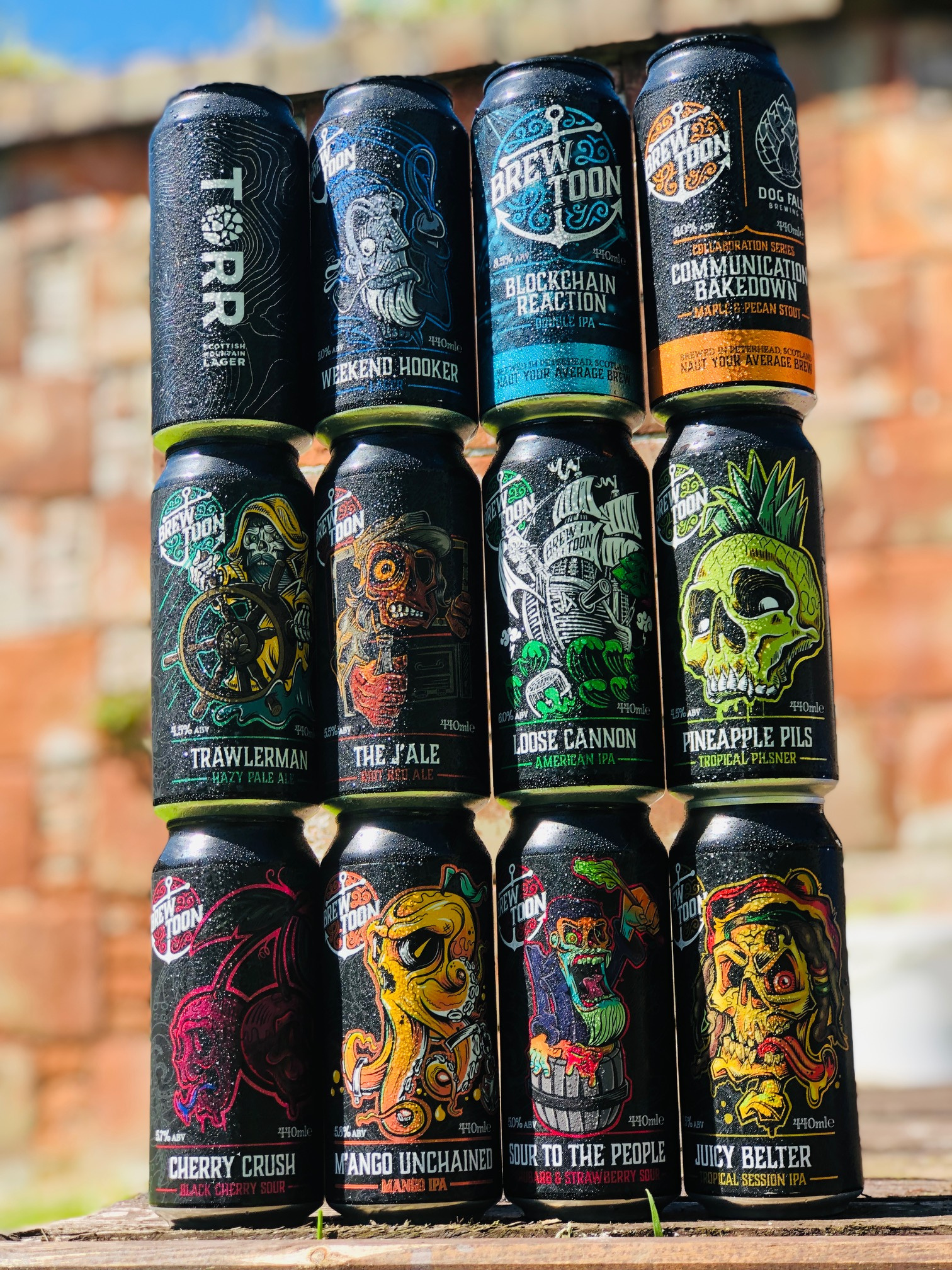
Brew Toon Q&A (cont'd)
The name Brew Toon comes from a play on “Bloo Toon” which is what Peterhead is known as locally, due to its historic fishing roots (local fisherman used to wear the Blue overalls down at the Dock yards back in the day). We love the coastal scenery up here and the harsh Scottish waves offer some pretty incredible views. We felt it was essential for us to relate with our local community and we love all the Nautical, tattoo style graphics so really wanted to incorporate that into our brand.
You were always great at hosting pop-ups and beer festivals. Have you been able to pick up this momentum post Covid? And where can we look forward to seeing you in 2023?
It’s great that we’ve seen the return of festivals post Covid as we absolutely love getting out there and speaking face to face with customers and other breweries/food & drink traders alike. The atmosphere and buzz we’ve seen from the return of these events has been fantastic to witness and it’s a big part of our plans for 2023. We have quite a few Scottish festivals and events already lined up but we’re keen to add more to this list and looking to pick up more UK listings if the right opportunities arise.
Some of your beer flavours are as progressive as your branding from mango to espresso. Are you able to give us a heads up about any new flavours on the horizon?
As you know, we’ve just released our 5th Birthday Beers, which are 5 special, amplified beers brewed to celebrate our 5th year in brewing. These have been selling really well and going down a storm with our fans so I would recommend checking these out as they are all tasting unreal! We have a few interesting collabs up our sleeve that we will be releasing soon, including a couple of fruited sour releases with our friends at Barney’s Beer Edinburgh, that launched on Friday 16th of December. The beer we brewed with them at Brew Toon is a Blackberry Crumble sour and tastes brilliant – definitely one worth looking out for.
And finally, out of all your fantastic flavours, which would you recommend to ring in the new year?
Caked in Stout – our 10% Blueberry Muffin Stout. For me, it’s up there with one of the best beers we’ve ever brewed. It’s a very special beer, one that we are really, really proud of and would be a fitting choice to ring in the new year, by celebrating 5 years of Brew Toon.
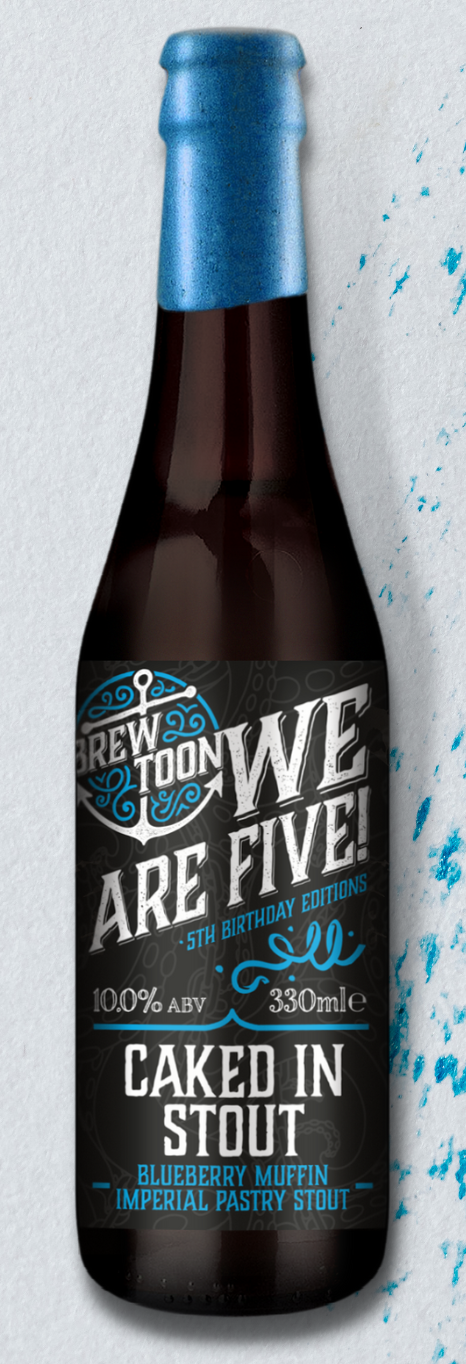
Meet the Team
What are your areas of expertise?
Physics, electronics and software. I have a particular interest and expertise in medical imaging and medical devices, and I’m seeing an increasing number of AI-related patent applications coming across my desk.
What type of clients do you work with?
A wide range of sizes and sectors, including SMEs, universities and multinationals.
What are your career highlights to date?
I am still delighted every time a client’s patent application goes through to grant!
What is your favourite dish?
A lamb and spinach curry or veggie biryani.
What is your top tipple?
I drink an enormous amount of fruit tea so I’m going to say Eteaket’s Sea Buckthorn tea. Or at this time of year, Teapigs Winter Glühwein tea (which is currently making my home office smell amazing!)
What are your favourite restaurants?
In Edinburgh, I’d go for Mother India’s Café or Meze Meze.
Who are your dream dinner guests?
I’m a massive podcast fan so I’d love to have dinner with Samin Nosrat and Hrishikesh Hirway from the Home Cooking podcast. They kept me enthusiastic about cooking during some of the 2020 lockdowns, and they always sound like they’re having a great time.
What is the most adventurous food/drink you’ve ever tried?
Jellyfish in China and soft-shell crab in the US.
What are your favourite hobbies?
I collect art by local artists. I organise theatre trips for my friend group and I’m also a fan of getting a sneaky last minute theatre ticket on my own – we’re really lucky with our theatres in Edinburgh.
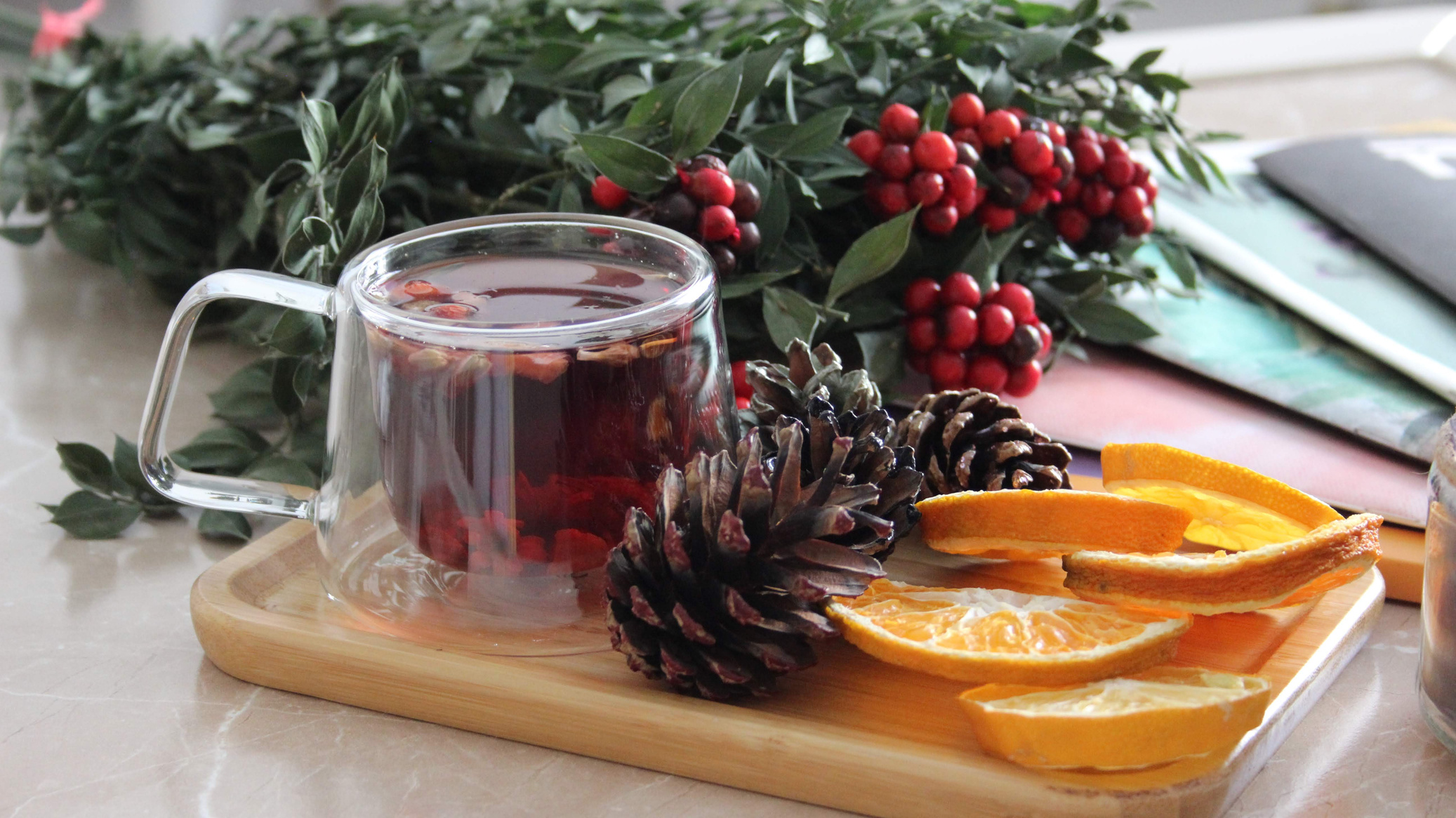
Meet the Team
What are your areas of expertise?
Patents, specifically in the areas of physics/electronics/software/artificial intelligence.
What type of clients do you work with?
All types - from individuals and start-ups to larger corporate clients (and everything in between).
What are your career highlights to date?
Too many to mention!
What is your favourite dish?
If I was looking for something healthier I would pick Sushi. But then again, can you really beat the original Berlin Doner kebab?
What is your top tipple?
I'd have to say IPA or a single malt (or both!)
What are your favourite restaurants?
There is quite a lot of competition but my recent favourite here was "The Table" with a very honourable mention for Timberyard (yes…I will accept complimentary dinner vouchers…)
Who are your dream dinner guests?
Very tough! Let’s go for: Margaret Atwood, George Orwell and Ally McCoist.
What is the most adventurous food/drink you’ve ever tried?
I've had the opportunity to try chicken hearts. They were surprisingly good!
What are your favourite hobbies?
Being outside…walking (preferably with a good pair of binoculars), running, cycling or even wild swimming (but only in the Scottish summer)
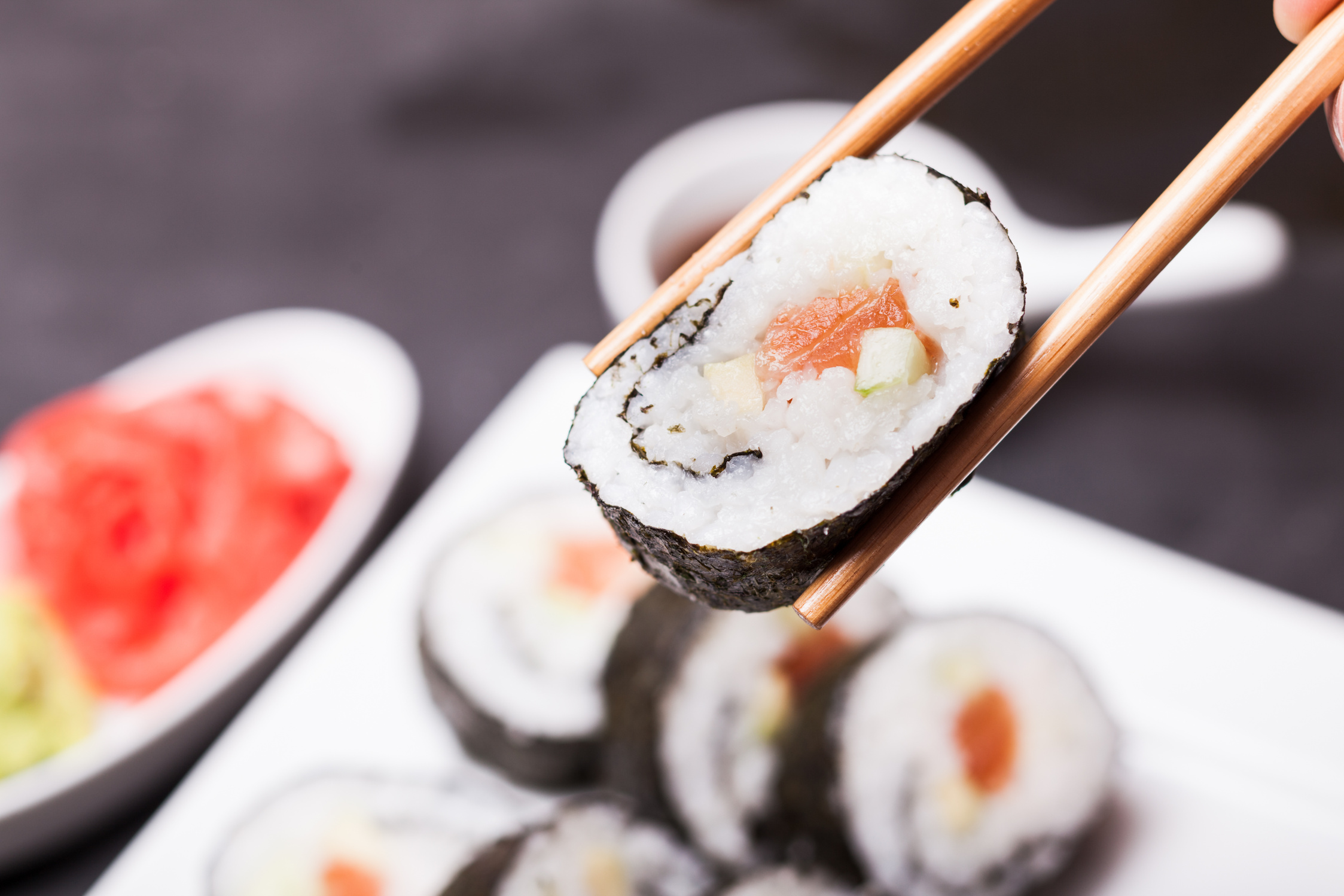

Christmas Challenge
For this edition of Scran & sIPs™ we asked our colleagues to send in pictures of their fabulous festive decorations.
Learning through failure!
"My first attempt at dried orange slices in the Aga, followed by the results of my second attempt in a glass with cinnamon sticks, bay leaves and cloves. Smells like Christmas."
Meena Murrin
Principal
Glasgow
Tinsel Town
Kiera opted for some classic Christmas decorations with an abundance of tinsel for her tree!
Kiera Cloete
Trade Mark Administrator
Edinburgh

Christmas Challenge
Christmas Village
Tomas created a true Christmas village, with classic Christmas characters and figurines dotted around the house!

Tomas Karger
Principal
Aberdeen

Marks & Clerk set up its first office in the UK in 1887. Today, we’re a leading global intellectual property firm, working in partnership with businesses of all shapes and sizes all over the world. Providing them with people whose legal, technical and commercial expertise exactly meets their needs. Shaping our services around them. Protecting, enforcing and maximising the value of their intellectual property to support them in achieving their business ambitions.
We have a passion for the world of food and drink
The world of food and drink is subject to constant change. Gaining and retaining the competitive edge and preventing competitors from reaping the rewards of your research and investment is a constant battle. We make sure your IP is properly protected as you expand into new product lines or territories. No other IP firm has the in-house capability of Marks & Clerk in technological knowledge and legal expertise.
Industry focus
With Marks & Clerk, you’ll work with people with a passion for the world of food and drink – people who are immersed in the changes taking place in the sector and able to anticipate potential IP opportunities and problems.
To find out more, visit www.marks-clerk.com or email info@marks-clerk.com